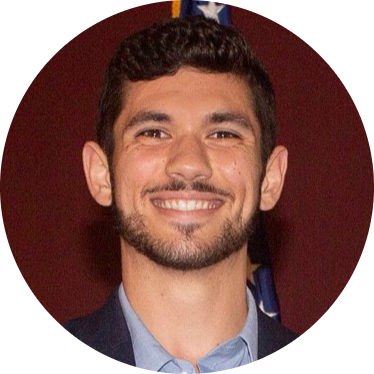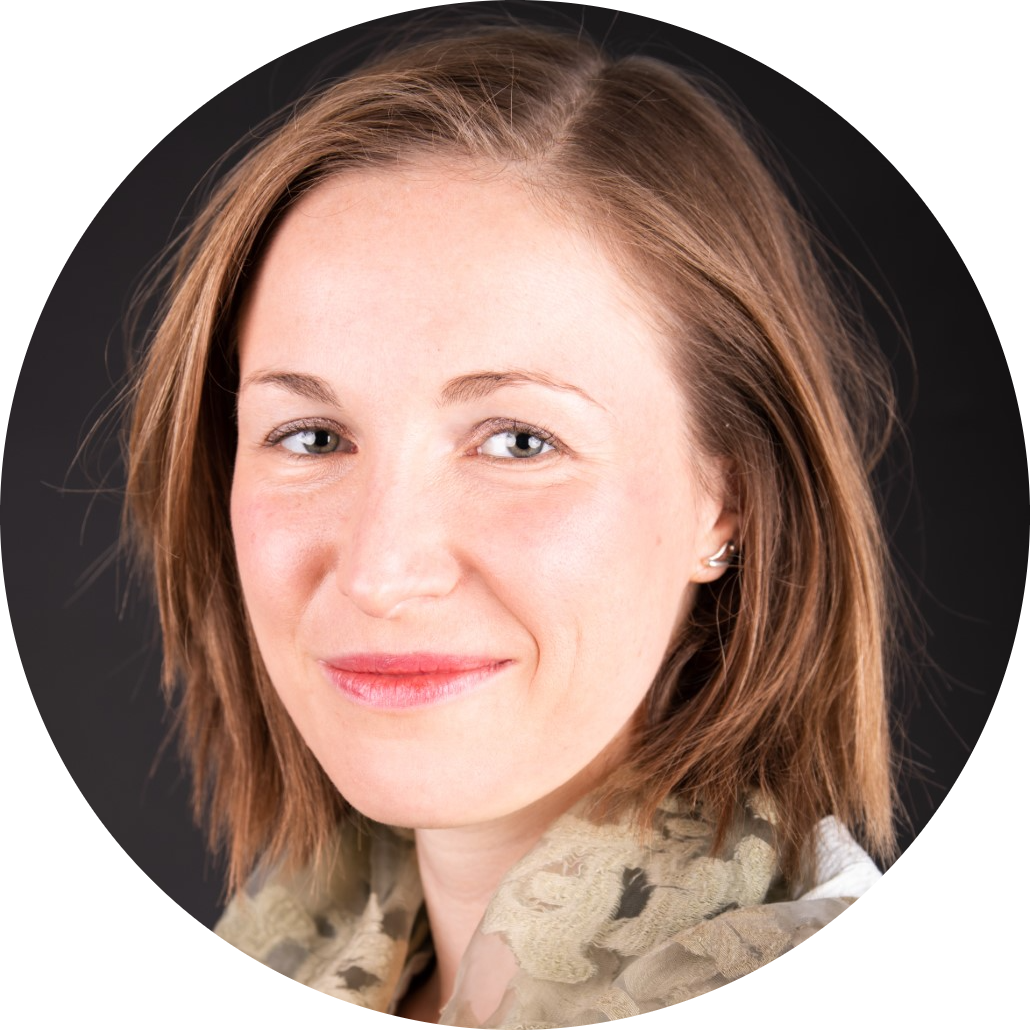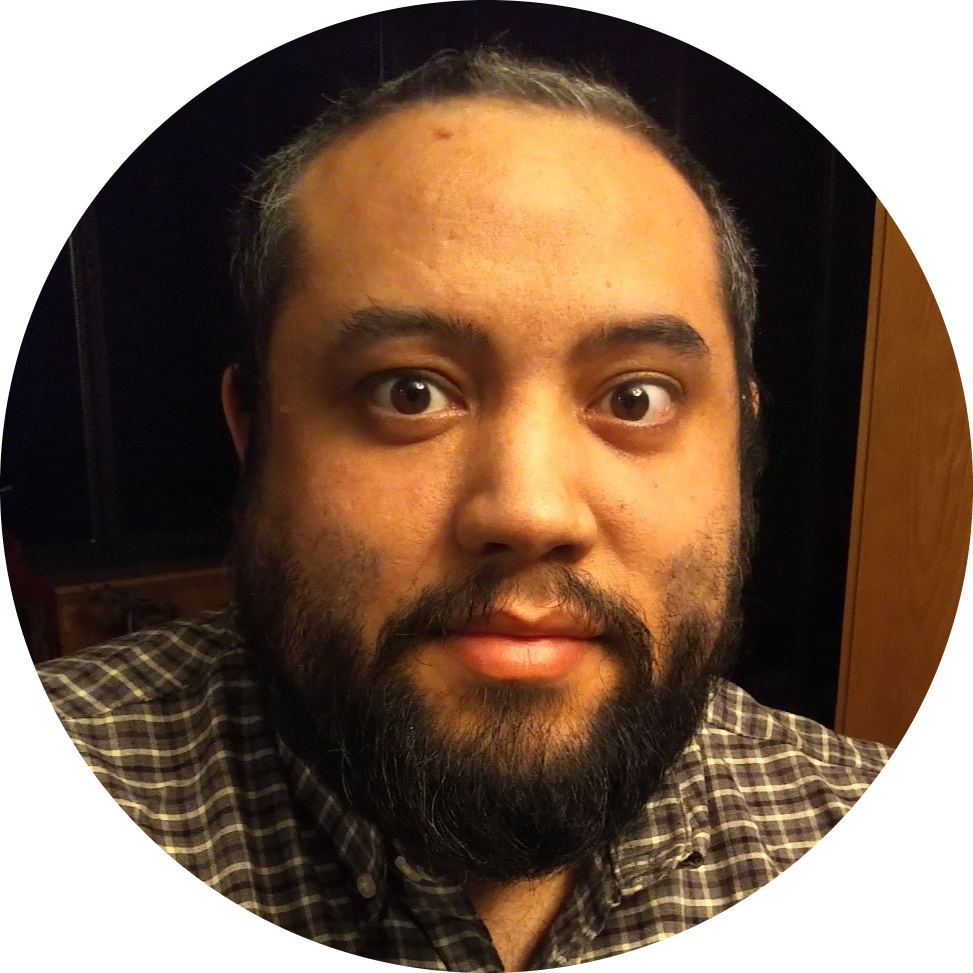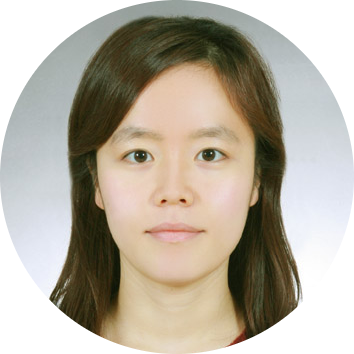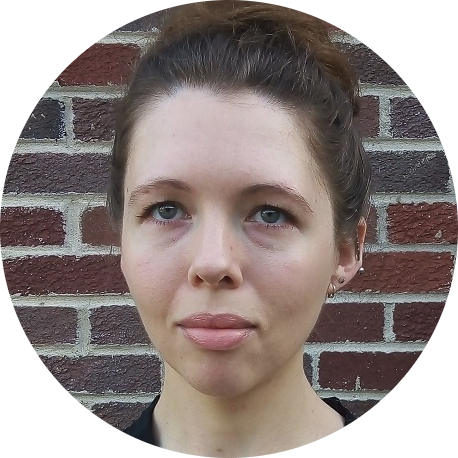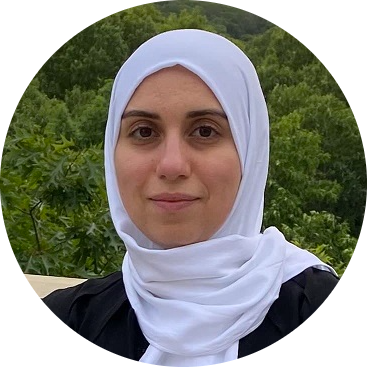This year, we welcomed 20 CAnD3 Fellows to our Training Program family. Every week, this cohort will be coming together from six different time zones and four different countries to discuss relevant, pressing, and important topics in population aging and research. Our diverse cohort of Fellows comes from 13 partner institutions and together represent seven different disciplines. There is no question that the discussions we will have together will be fruitful, challenging, and fun! Here is to a successful year of training with you all!
|
|
Clara Bolster-FoucaultPrevious degrees: BA in Psychology & Biology - Concordia University; MSc in Public Health - McGill University Current degree: PhD in Epidemiology – McGill University Location: Canada https://www.linkedin.com/in/clara-bolster-foucault-603489b4/ Read moreClara Bolster-Foucault is a doctoral candidate in Epidemiology at McGill University and a 2021-2022 CAnD3 Fellow. Her research focuses on evaluating health services, systems, and policies from an equity lens to understand how they impact the health and well-being of underserved populations. Clara’s doctoral thesis examines social inequity in aging in place in Quebec and explores the role of access to primary healthcare and social support in shaping these inequities. In tandem with her thesis, Clara is working with SE Research Centre to evaluate the applicability of a case-mix classification system using interRAI data in transitional home care programs in Ontario. She is an advocate for bridging the gap between research, policy, and practice, and is interested in building collaborative partnerships with knowledge users and people with lived experience to guide research questions.
|
|
|
Tyler BruefachPrevious degrees: BS in Sociology - Florida State University; MSc in Sociology - Florida State University Current degree: PhD in Sociology – Florida State University Location: United States
Read moreTyler Bruefach is a doctoral candidate in the Sociology department at Florida State University. Tyler researches how early-life circumstances shape health and well-being in the future, through nonmaterial resources like social relationships and psychological resilience. His dissertation employs a life course perspective of resilience to understand how early-life disadvantage shapes the associations between psychological resilience and physical health at midlife and later life, and whether disproportionate disadvantage explains racial/ethnic variations in these resilience-health linkages. Tyler is excited to be surrounded by a talented group of Fellows to hone his skills in advanced quantitative methods, data transparency, public and administrative data, and interdisciplinary collaboration. Tyler previously worked at Florida State University and managed the Campus Recreation Employability Study, meant to gauge the employment outcomes of student-employees within campus recreation programs. He collected and wrangled 3 waves of data from respondents across 30 colleges and universities, and communicated methodologies and results with university representatives.
|
|
|
Yvonne ChangCurrent degree: PhD in Sociology – McGill University Previous: MPH in Sociomedical Science – Columbia University; BA in Biochemistry – Barnard College Location: Canada
Read moreYvonne Chang is a PhD candidate in McGill University’s Department of Sociology and a student affiliate of the Centre for the Study of Democratic Citizenship. Her research explores immigrant and minority experiences of social inclusion/exclusion. She is currently working on her dissertation, using Canadian survey data to investigate patterns in immigrants’ sense of belonging and social integration. She received a doctoral scholarship in support of this research from the Fonds de Recherche du Quebec – Société et Culture (FRQSC). Yvonne holds a BA in biochemistry from Barnard College and an MPH in sociomedical sciences from Columbia University’s Mailman School of Public Health. She previously collaborated on community-based research projects concerning prisoner reentry in New York City and social determinants of health among criminal justice populations in the US. As a CAnD3 Fellow she hopes to better understand policy decision-making processes and improve her knowledge mobilization skills, in addition to learning about population analytics.
|
|
|
Mélissa CoissardCurrent degree: PhD in Economics – Université du Québec à Montréal Previous: MSc in Economics – Aix-Marseille School of Economic (AMSE), Université d’Aix-Marseille; BSc in Economics – Université de Montpellier Location: Montréal, Canada
Read moreMélissa is a Ph.D. student in the economics department of the University du Québec à Montréal. Her research can be classified in four areas of inquiry: economics of education, labor economics, human capital development, and policy evaluation. Particularly, she works on identifying determinants of early childhood development, and the ways to promote them. Her aim is to understand how to reduce the early childhood developmental gap mainly responsible for socioeconomic, and well-being inequalities. Prior to the doctoral program, she worked as a field research associate at the Poverty Action Lab for the impact evaluation of an early childhood program on oral language development in France. She has finished a Master’s degree in economics at the AixMarseille University. Her Master’s thesis evaluated the impact on child development of a material-based parenting program, which expanded access to child-rearing information to new Californian parents. Her participation in the CAnD3 training program will allow her to deepen her knowledge about population aging. In doing so, she will get a global vision of individuals’ life trajectories, and thus, adopt a pertinent vision of what can be done at the early stage of life. In 2020-2021, Mélissa was awarded the doctoral Fond de Recherche du Québec Société et Culture fellowship, the UQAM Foundation Excellence Scholarship, the Eric Girard Excellence Scholarship, the UQAM Foundation Engagement Scholarship and was the 2021 ESG UQAM Ambassador of Research Succession Nominee.
|
|
|
Rachel GanlyCurrent degree: PhD in Sociology – University of Oxford Previous: MPhil in Social Science – Hong Kong University of Science and Technology; BSc (Honours) in Mathematics – University of Bath Location: United-Kingdom
Read moreRachel is a first year DPhil Student in Sociology at Oxford University. Her research interests are family formation, social stratification, fertility, and other topics in social demography broadly. Rahcel hold an MPhil in Social Science from Hong Kong University of Science and Technology, and BSc (Honours) in Mathematics from the University of Bath. She previously lived in Hong Kong for eight years, several of which were spent working at PathFinders, an organization which assists domestic workers during pregnancy and childbirth.
|
|
|
Sofia Gil-ClavelCurrent degree: PhD in Digital and Computational Demography – Max Planck Institute for Demographic Research, University of Groningen Previous: MSc in Computer Science – Mathematical Research Center of Mexico (CIMAT); Actuarial Science – National Autonomous University of Mexico (UNAM) Location: Germany
Read moreSofia Gil-Clavel is a PhD student at the Digital and Computational Laboratory of the Max Planck Institute for Demographic Research, affiliated with the Faculty of Spatial Sciences of the University of Groningen. In her work, Sofia uses data from Facebook and Twitter to study older people’s usage of communication technologies and migrants’ cultural integration, respectively. She combines techniques from computer science (e.g. machine learning and metaheuristics) with statistical methods (generalized linear models, survival analysis, bootstrapping). Previously she studied actuarial science at the National Autonomous University of Mexico (UNAM) and has a MSc in Computer Science from the Mathematical Research Center of Mexico (CIMAT). After her MSc, she joined the Mexican National Population Council (CONAPO) as head of the Department of Demographic Studies.
|
|
|
Allison LaingCurrent degree: PhD Sociology – University of British Columbia Previous: MA Sociology – University of British Columbia; BA English Literature – University of British Columbia Location: Vancouver, Canada\
Read moreAllison Laing is a PhD student in the Department of Sociology at the University of British Columbia, a research coordinator at the British Columbia Centre on Substance Use, uses she/her pronouns, and is a settler on the unceded territories of the Coast Salish peoples. Her research centers on economic participation and financial management practices among marginalized people who use drugs, including informal credit structures within social networks and alternative financial service use, and how these practices impact drug use patterns, social connections, institutional engagement, and exposure to risk. Before returning to academia, Allison worked for many years with people who use drugs in Vancouver, first in housing and harm reduction service provision and then community-based research using both quantitative and qualitative methods. As a trainee with CAnD3, she is excited to broaden her analytic skill and gain experience in data-to-decision making processes including how to mobilize research to inform policy and programmatic change.
|
|
|
W. Zachary MarshallCurrent degree: PhD Sociology – McGill University Previous: MA in Sociology – University of Western Ontario; BA in sociology and Political Science – Kings University College. Read moreW. Zachary Marshall is a PhD Candidate in McGill University’s Sociology Department, a trainee with McGill’s Centre on Population Dynamics, and a student member of the Centre for the Study of Democratic Citizenship. His research focuses on questions of immigration, and immigrant experiences in the Canadian context. In his current work, Zachary is looking to explore the different paths migrants take to get to Canada, specifically refugee sponsorship programs, in order to understand how these programs contributed to the overall experience of these migrants. Zachary has demonstrated his knowledge through teaching statistics for social research class at McGill, and looks to continue his own technical skills and knowledge with the CAnD3 Program, while also gaining practical skills and meeting individuals already working in academic, and governmental positions.
|
|
|
Isaac MpindaCurrent degree: PhD Sociology – University of Western Ontario Previous: Master of Public Administration – University of Regina; Master of Governance and Regional Integration – Pan African University; BSc in Agricultural Extension – University of Malawi Location: London ON, Canada
Read moreIsaac Mpinda is a first year Sociology doctoral student at the University of Western Ontario. He holds a Master of Public Administration from the University of Regina (Canada), a Master of Governance and Regional Integration from the Pan African University (Cameroon), and a BSc in Agricultural Extension from the University of Malawi (Malawi). Prior to his doctoral studies, he worked in social protection and was involved in planning, implementing, monitoring and evaluating social protection programs. His research interests are in immigration policy, social demography, social protection and quantitative research. In his doctoral research work, he would like to focus on settlement of immigrants in Canada and their welfare. Through the CAnD3 fellowship, he would like to advance his knowledge and skills in data and computational science, and empirical approaches to population analytics. This makes it a great complement of his coursework and specialization, especially considering that immigration is a major Canadian policy, and also a great networking platform.
|
|
|
Julia NakamuraCurrent degree: Master’s in Health Psychology – University of British Columbia Previous: BSc in Psychobiology, Minor in Gerontology – University of California, Los Angeles (UCLA) Location: Vancouver, Canada
Read moreJulia Nakamura is currently a Master’s student in the Health Psychology Program at the University of British Columbia. She holds a Bachelor of Science in Psychobiology with a minor in Gerontology from University of California, Los Angeles (UCLA) (2020). Broadly, Julia is interested in the aspects of psychological well-being that positively influence physical health outcomes, health behaviors, and psychosocial well-being in older adults, with her research lying at the intersection of health psychology, psychological well-being, gerontology, epidemiology, and translational science (e.g., working with organizations such as IDEO). Julia primarily uses data from the Health and Retirement Study—a nationally representative cohort study of older adults aged >50 in the U.S., to evaluate various psychosocial well-being exposures and how they influence several indicators of healthy aging. Her current research is focused on how altruism and volunteering are associated with health and well-being. She is currently working with United Way Worldwide to learn about and address the top needs of older adults during COVID-19. As a CAnD3 Fellow, Julia hopes to build pan-Canadian, interdisciplinary collaborations, expand to other population survey data sources, and learn about new statistical methods in population data science.
|
|
|
Ina PaliiCurrent degree: PhD in Sociology, Collaborative Specialization in Migration and Ethnic Relations – Western University. Previous: MA in Sociology – Western University; BA (Honours) in Sociology, Minor in Health Sciences – Western University Location: Canada
Read moreIna Palii is a Sociology PhD student, enrolled in the Collaborative Specialization in Migration and Ethnic Relations at Western University. Her broad research interests are in the social, economic, and health outcomes of various immigrant groups to Canada and the United States, with a focus on Eastern European immigrants. Ina obtained her MA in Sociology in 2020. For her Masters' Research Paper, Ina analyzed the disability outcomes of Eastern European immigrants in the United States. For future projects, Ina is also interested in looking at how immigrants age in host countries, if their older-age needs are being met, as well as the influence of ethnic enclaves on older immigrants’ health and well-being. By participating in the CAnD3 training, Ina hopes to acquire experience using administrative data, refine her quantitative skills, and learn how to efficiently translate academic knowledge for various audiences, including the broader public.
|
|
|
Gum-Ryeong ParkCurrent degree: PhD in Health & Society – McMaster University Previous: Master of Public Health – Korea University; BSc in Healthcare management – Korea University Location: Hamilton, Canada
Read moreGum-Ryeong Park is a fourth-year doctoral student at McMaster university. Prior to coming to Canada, she was a senior researcher at the Korea Institute for Health and Social Affairs, a national think tank within the Prime Minister Office of South Korea. She got involved in policy making process aimed at improving population health outcomes in Republic of Korea. Her current research focuses on how housing factors (such as tenure, affordability, and physical conditions) have effects on individual/and ecological level health outcomes. She relies on a series of quantitative methods (e.g., survival analysis and fixed effects model) to identify the link between housing and health. Furthermore, she is working on projects funded by Canadian institute for Health Research, which aims to assess income inequality and health in Canada and USA. She is a recipient of Ontario Trillium Scholarship that grants top international students to Ontario for PhD studies. She is excited to be accepted into CAnD3 fellowship and learn more about statistical methods used in population and health studies.
|
|
|
Amy PitonakCurrent degree: PhD in Demography – University of Montreal Previous: MA in Political Science; Bachelor’s in Interdisciplinary Studies Location: Canada
Read moreAmy Pitonak is a PhD student in demography at the University of Montreal. For her doctoral research, she is using longitudinal survey data to examine how stays in third countries prior to arrival affect the health outcomes of immigrants and refugees in Germany. She is also interested in how socioeconomic status in the origin country shapes migratory trajectories. Her research is informed by a life course framework, particularly theories of cumulative advantage/disadvantage. During the CAnD3 program, she looks forward to improving her skills in computational social science and in learning about how to collaborate with diverse actors in translating research results into practice. She has an MA in Political Science and a Bachelor’s in Interdisciplinary Studies, and her broader research interests include “transit” migration, refugee resettlement, and the externalization of migration policies.
|
|
|
Elham ShekariCurrent degree: PhD in Urban and Regional Planning – Florida State University Location: United-States
Read moreElham Shekari is a doctoral candidate in the department of Urban and Regional Planning at Florida State University. Her interests in urban planning stems from a curiosity around the urban phenomena of conglomerations of people across diverse ages, backgrounds and abilities, transportation systems, architectural designs and streetscapes, greenspaces and parks, and how urban designs affect our lived experiences. Elham's research interests include the dynamic relationship between transportation and the built environment, and how that in turn affects public health. She is interested in understanding how auto-oriented infrastructures have contributed to sedentary lifestyles and poor chronic conditions. Her dissertation proposal presentation exploring the relationship between transit-oriented developments and obesity earned second place in the annual Three Minute Thesis (3MT™) competition at Florida State University. She hopes that her research can shed further light on how transportation infrastructures that accommodate walking, biking, transit, multimodal infrastructures (such as bike lanes and wide sidewalks), micro-mobility options (such as e-scooters and e-bikes), and dense land patterns can help contribute to active lifestyles and thus, healthier physical outcomes across all ages and backgrounds. Elham is excited to be a CAnD3 Fellow and gain deeper interdisciplinary skills on population analytics in an Aging Society.
|
|
|
Matthew StackhouseCurrent degree: PhD in Sociology – University of Western Ontario Previous: BA in Sociology - University of New Brunswick; MA in Sociology - Western University Location: Canada
Read moreMatthew is a 2nd-year Sociology doctoral student at the University of Western Ontario. He is a life course sociologist with an interest in the social determinants of health and family. His dissertation research focuses on intergenerational processes, with a particular interest in parenting practices, that link parental health and behaviours to their children’s health in adulthood. As a researcher, Matthew employs quantitative methods including longitudinal analyses and latent variable models. His work draws on large-scale surveys such as the Canadian Community Health Survey, National Longitudinal Survey of Children and Youth, and National Longitudinal Study of Adolescent and Adult Health. Through participation in the CAnD3 training program, he hopes to advance his research abilities, professional skills, and networks within academia, government and the private sector.
|
|
|
Jennifer SuliteanuCurrent degree: Master’s/PhD program in Experimental Psychology – McGill University Previous: BSc (Honours) in Psychology – Concordia University Location: Canada
Read moreJennifer Suliteanu has an Honour’s Bachelor of Science in psychology from Concordia University. Jennifer is currently in her second year of a Master’s/PhD program in experimental psychology at McGill, specializing in social psychological research. Jennifer’s research interests focuses on how within-person attitude change impact society-level prejudice towards various groups over time. During her graduate training, Jennifer has been working extensively with data from Project Implicit on how attitudes toward marginalized groups have been changing over the last fifteen years. Ongoing research aims to test whether various events (e.g., laws, localized events) elicit permanent shifts in attitudes, the extent to which any shifts endure, and potential policy implications. Jennifer’s interests in the program center on bringing techniques from population level statistical approaches to psychological questions. Jennifer is also interested in expanding my research into novel domains such as social media. Ultimately, she would like to learn how her research can best connect to policy and make a difference.
|
|
|
Feinuo SunCurrent position: Postdoctoral Fellow of the Global Aging and Community Initiative (GACI) – Mount Saint Vincent University Previous: Ph.D. in Sociology – University at Albany, SUNY Location: Canada
Read moreI am a postdoctoral fellow of the Global Aging and Community Initiative (GACI) at Mount Saint Vincent University, starting in August 2021. My research interests focus on demography of health, rural/urban studies, migration, spatial analysis, and quantitative methods. I received my Ph.D. in Sociology from University at Albany, SUNY. In my dissertation, I assembled a spatiotemporal dataset from 2006 to 2018 based on national data sources such as the Multiple Cause of Death (MCOD) data and American Community Survey 5-year estimates to examine how the uneven development of the opioid crisis in the U.S. is constructed across time and space. The methods I use include geographical mapping, fixed effects modeling and spatial panel fixed effects modeling. Currently, I work with Dr. Zachary Zimmer and his research team as a collaborator for their NIH-funded project titled: “The Demography of Chronic Pain: A Population Approach to Pain Trends, Pain Disparities, and Pain-Related Disability and Death.” In the CAnD3 program, I look forward to advancing my substantive and methodological knowledge on aging and population health studies and exploring more research possibilities using various data sources and new methods.
|
|
|
Han WangCurrent degree: PhD in Sociology – University of Saskatchewan Previous: MA in Demography – Renmin University of China; BA in Sociology – Northwest A&F University Location: Canada Read moreHan Wang is a PhD candidate in the Department of Sociology at the University of Saskatchewan. He is working under the supervision of Dr. Laura Wright. His research interests lie in the areas of family demography and migration studies and focus on institutions where fertility and migration policies intersect from a demographic perspective. His current dissertation research focuses on childlessness and fertility intentions in Canada. Particularly how the trajectory of unions can affect the decision to bear a child, and the impact of economic background and social stratification. Due to his research experience, in the CAnD3 program, Han is interested in how relationships between fertility levels and fertility policies change the population aging process, and how these policies contribute to individuals’ aging processes. Additionally, Han works as a popular science columnist for a website, writing articles that discuss the latest research findings in social science and helping the public understand the social policy and social reality.
|
|
|
Jason Edward PagaduanCurrent degree: PhD in Sociology – University of Toronto
Read moreJason Edward Pagaduan (he/they) is an Ilokano doctoral candidate in Sociology at the University of Toronto. Their research interests are organized around three main areas: health and well-being of older adults, consumption and consumer culture, and feminist epistemology. Jason's dissertation research is centered at the intersection of community organizing, pleasure, and aging among a self-organized community of racialized older adults. A cultural sociologist with a focus on epistemology, Jason's desire is to learn the multitude of methods social scientists use to produce knowledge that is then mobilized by policymakers, institutions, and other industries. They also have a keen interest in knowledge translation, teaching, and pedagogy. Jason believes in making research more accessible to relevant stakeholders and students alike to promote inclusivity and diversity in industry and higher education. They are excited to make use of this wonderful opportunity to enhance their methodological toolkit, collaborate with a diverse group of scholars focused on population aging, and work with consortium partners.
|
|
|
Shreyans KothariPrevious: BA in Economics and International Relations – Boston University; Master’s in Quantitative Methods and Public Administration – Columbia University Location: New York
Read moreShreyans Kothari, originally from Jaipur, India, is currently a dual degree Master’s student at Columbia University studying Quantitative Methods and Public Administration. He holds a BA in Economics and International Relations from Boston University where he also worked as a research assistant at the Global Development Policy Center on an RCT on family planning and women’s reproductive health in rural India. Shrey is passionate about data science and its potential to transform the field of international development. His previous experiences include working at Save The Children, United Nations Foundation, and Sensis Agency in Washington D.C. Currently, Shrey is working as a Data Support Fellow at the Center for International Earth Science Information Network on a project titled Geo-Referenced Demographics Data for Development. Shrey is eagerly looking forward to joining the fellowship, exploring population analytics, and learning from the cohort’s combined experiences.
|

